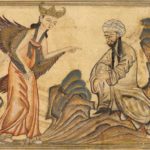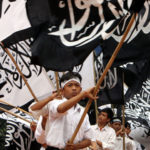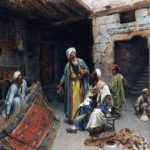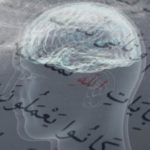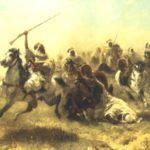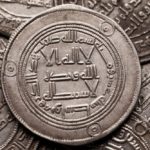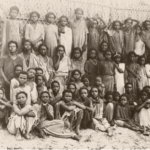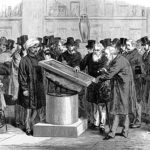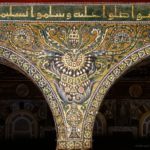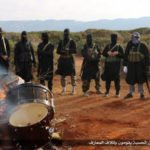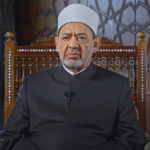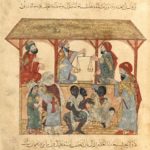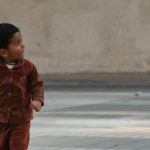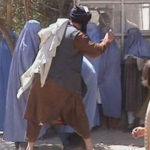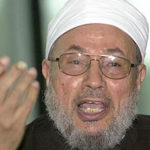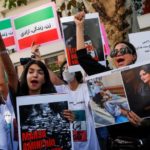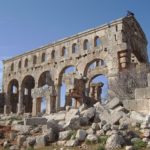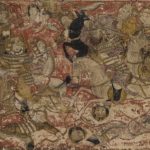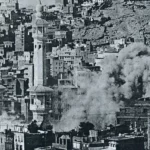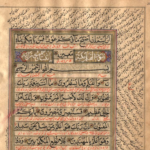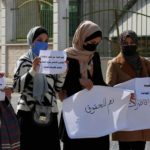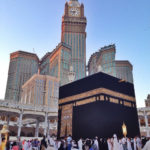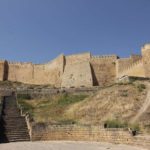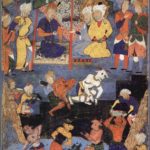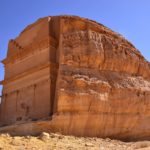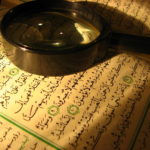Islam and Rationality
The place of the rational sciences in Islamic civilisation
One of the misconceptions that has prevailed for many decades in the countries of North Africa and the Middle East and entered the school and...
Loss of causality – a factor in the decline of Muslim science
Some citizens wonder why the jurisprudential system was unable to comprehend the curricula of science in the lands of Islam. We shall here look at...
Mass rural migration to the city
Mesopotamia and the Nile Valley are distinguished by a historical development founded upon agriculture as a primary source of civilisational progress. The agricultural village played...
The historical relationship between faith and science
Islamic societies in particular and Arab societies in general passed through a dark period lasting for hundreds of years. Since the fall of Baghdad, the...
Islam and respect for the intellect – 3
The philosopher Ibn Rushd tried to rescue philosophy and wrote his famous work The Incoherence of the Incoherence refuting the views of al-Ghazālī. But unfortunately reason...
Islam in History
On the Prophet’s biographers
The biography of Islam’s Prophet Muḥammad of Islam compiled by Ibn Isḥāq Muḥammad ibn Isḥāq ibn Yasār ibn Khiyār (80-151 AH) has been the object...
The Prophet Muhammad in non-Islamic sources
In his History of the Caliphs, Jalāl al-Dīn al-Suyūṭī traces the history of the Islamic Caliphate from the death of the Prophet Muḥammad to the...
‘The Best Centuries’ – How should we understand history? – 2
There is a question that takes priority over all other questions, and this is the isnād – the ‘train of transmission’ of hadith – an axiom taken...
‘The Best Centuries’ – How should we understand history? – 1
Heritage may be considered a sea that those who do not know how to swim will drown in or surrender to everything that floats on...
Spotlight on falsified history
The following are some general illuminations about the texts of the historiographers. In the Islamic heritage the account of wars and invasions were written by...
Salafist Discourse
Takfir as an eradicating culture
The issue of takfir (declaring a person an ‘infidel’) is occupying a steadily expanding place in the media and discourse, and in ways that go...
Intellectual pollution or polluted thinking? – 1
Say: Are those who know equal with those who know not? Everything rests on a pillar, and the pillar of the believer is his...
Intellectual pollution or polluted thinking? – 2
This free digression may seem misplaced and off topic, but in reality it is not. What is it, then, this intellectual pollution? It is not the...
A fake Salafism – 3
Salafist thought is a ‘Bedouin viewpoint’ in the history of Islam, something which is incapable of founding a state or establishing a culture or a...
A fake Salafism – 2
Islam has known, throughout its long history, multiple interpretations from which various schools of jurisprudence and fundamentalism arose. Each school had its intellectual and actual roots...
Ethical Issues
Shaykh al-Azhar and the ‘rules’ on beating women
The debate on violence against women in Egypt returned after a female parliamentarian proposed a law to criminalize spousal violence, a phenomenon which – staggeringly...
Islam and the concepts of mercy and revenge
We must first define Islam according to the dictionary: Islam is a proper noun, denoting those who adhere to the religion of Islam. The word ‘islam’ means showing...
In what way are Muslims ‘defeated when they abolished slavery’? – 2
From a scientific point of view, and particularly physiologically, there is no difference between an Arab woman and a Byzantine woman captured by Muslim armies...
In what way are Muslims ‘defeated when they abolished slavery’? – 1
On the website Sudan Online an Islamist wrote an essay entitled ‘How Muslims lost by abolishing slavery.' Its author bemoaned the divine good deeds that Muslims were...
The rights of the child in Islam – 1
We must admit at the outset that when Islam emerged the rights of the individual were not as they are now. The individual was a...
Islamism
The controversial concept of ‘Islamism’
First of all it should be said that the controversy over this concept comes from the very description of Islam as a religion and a...
The Hijab is a political slogan – 2
There is need for a different approach to thinking about the issue of hijab and female dress. Any campaign for the liberation of women in Muslim societies...
The Hijab is a political slogan – 1
The topic of hijab is the largest example of a sub-issue in the Islamic religion that has been turned into a central issue for political, social and...
The Islamist fantasy of an economy
In our previous essay The Islamist fantasy of a state we touched on the claims of advocates of political Islam about their Islamic project, and discovered that it...
The Islamist fantasy of a state – 2
It is surprising to find those who call for political Islam and the Islamic state claiming that such as state will be one of freedom...
Religious Reform
The excesses of tafsīr and the modernisation of thought
One ought to acknowledge at the outset that no consensus exists on any interpretation or clearly specific reason for any elucidation of a Qur’ānic verse....
The rights of women to religious spaces
Equality between human beings without distinction on the basis of sex, race or class is one of the core values of the Islamic religion, and...
The borderlines between the religious and the mundane
Every day, one becomes more convinced that the world today is being changed by science, knowledge, the means of communication and new technology, and by...
Awakening the humane in faith
Man as the 'caliph’ of God is the light of God in the world. If man disappears as the caliph the light of God is...
No to the prevailing interpretations of the faith
Conditions in the Arab world are bad, actually very bad. It is plagued by a religious and tribal culture that has for centuries wiped clean...
The Doctrinal Dimension
Praying for the Prophet
Muslims are fond of claiming that Islam respects reason and that God is known through reason. But their actions do not suggest any significance granted...
Ramadan between the Manichaeans and the Mandaeans
The month of Ramaḍān is the ninth month in the Islamic Hijri calendar and follows the month of Sha‘bān. Muslims attach a special place to...
The Islamic view on the Hebrew Old Testament
Non-Muslims generally see Islam as a political-religious movement, built entirely on a holy book – the Qur’ān – a book of paramount and fundamental importance...
Islamic myths – Yajuj and Majuj – 2
In the Torah, just the name Māgōg ( מָגוֹג ) is mentioned in the Book of Genesis, which is the first book of the Torah...
Islamic myths – Yajuj and Majuj – 1
The Qur’ān mentions Yājūj and Mājūj (Gog and Magog) as corruptors and that Dhūl-Qarnayn asked the people who had complained of their corruption to appoint...
The Scriptural Dimension
On the origins of Islam and the Qur’ān – 2
Research studies are demonstrating that there were a large number of religious groupings in the first centuries, and that these groups formed a veritable mosaic...
On the origins of Islam and the Qur’ān – 1
The writers of The Great Secret of Islam and The Three Faces of the Qur’ān present a view that runs contrary to the Islamic narrative...
On scholarly studies on the history of the Qur’ān
Many scholarly studies have recently been published on the history of the Qur’ān and the early history of Islam. Their common denominator is primarily one...
The Qur’ān conflicts with history
The Qur’ān mentions the tribe of Thamūd more than fifteen times, either explicitly mentioning them as Thamūd or as the ‘people of Ṣāliḥ’. The name...
Who is the one speaking in the Qur’ān?
If a military liaison officer relayed a message from the division’s commander-in-chief and said: “Your commander has ordered that you obey only him”, what would...
